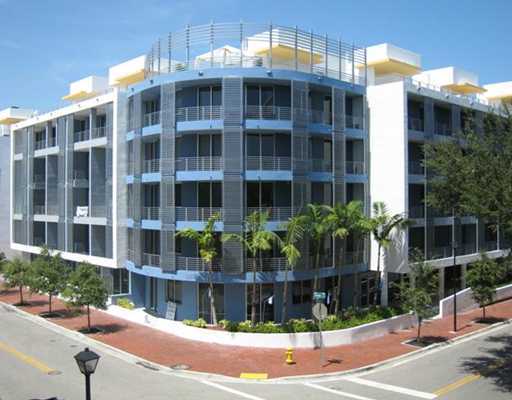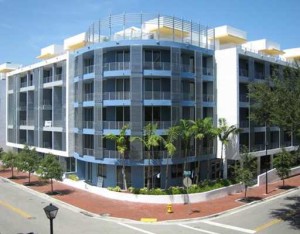



Bank of America/USA Today Better Money Habits® Millennial Report, provides great insight into the financial concerns of the millennial generation. As the mother of three millennials, ages 21-25, and a Realtor I am always interested in what reports say drive this group of young adults.
Of great interest is the correlation between jobs and housing in areas where millennials like to live, which tend to be cities with plenty of cultural and social activities, strong public transportation, high percentage of others in their age group (18-34) and ethnic diversity.
According to the B of A study, “No matter where they live, the cost of living is a concern for a majority of millennials. More than half are also concerned about their ability to save based on where they live.” This is also one of my concerns for my children. My youngest is already thinking about where she is going to move once she graduates. Although she realizes it will depend where she finds a job in film editing, she is looking at cities that have both a large film/television production industry and a lower cost of living than some of the big cities, such as Los Angeles and New York.
Given the top Forbes’ Best Cities for Millennials in 2015, it is not surprising that cost of living is such a large concern. Eleven of the top 25 cities have rents at or close to $1300 per month. If you go by the rule of thumb that no more than 30% of your annual income should go to rent, then millennials in these cities would have to make a minimum of $52,000 per year. Miami rents have gone up significantly as well and though we didn’t make Forbes’ cut as top 25 cities, I think that is changing with the emergence of a strong tech entrepreneurial center.


With South Florida rentals in high demand, increasing rents, and available rentals low, investors are searching for multifamily properties. According to LoopNet, 9 out of the Top 10 Most Popular South Florida Properties were multifamily.
Here are some multifamily properties for sale in Miami areas with high rent demand.
Sorry, I had to remove the video because the unit rented in one day!
During a Sunday get together, the rent vs buy question came up and a lively discussion ensued. The individuals who were pro-renting argued that renting provided:
The pro-buyers argued that buying was better because:
Obviously both renting and buying have their pros and cons. The New York Times rent vs buy analysis says that overall, if you stay in a place for 5 years or more, you are better off financially buying. This analysis assumes that the landlord pays utilities, which for the most part in Miami-Dade is not the case. The tenant usually pays all utilities, except for those that are provided by, and included in, the condominium’s maintenance fee.
So what side of the fence are you on and why?
According to Trulia’s Q1 Rent vs Buy Index, Miami is #1 on the Top Ten Cities To Buy vs Rent table. The reason I titled my post “ It May Be Cheaper To Buy Than To Rent” instead of “It Is Cheaper To Buy Than To Rent” is because Trulia arrived at their conclusion by comparing two-bedroom apartments, condominiums and townhomes, currently listed on their website. If you want to find out if you are better off buying or renting, use their rent calculator and fill it in with your own rental costs and home specifications.
Obviously is more to consider than simply the cost when you decide whether to rent or own, but knowing your costs is probably one of the largest factors.
![]() I have had several customers moving to Miami wonder where all the cheap rentals they are reading/hearing about are? There are still plenty of rentals in the downtown Miami area, but that is a generalization. Most renters are looking for a specific type of building, location, price range etc., all of which are limiting factors. One of my clients wanted a 3 bedroom 2 bath and her specifications meant there were only two available rentals.
I have had several customers moving to Miami wonder where all the cheap rentals they are reading/hearing about are? There are still plenty of rentals in the downtown Miami area, but that is a generalization. Most renters are looking for a specific type of building, location, price range etc., all of which are limiting factors. One of my clients wanted a 3 bedroom 2 bath and her specifications meant there were only two available rentals.
Here is what is available in the MLS if you are looking in the Brickell/Coconut Grove area for unfurnished condos built since 1990:
You would be surprised by how much your specifications will either shrink or increase the availability of rentals in the Miami area.
Many economists are predicting a significant hike in home prices over the next 5 years, so if you are a renter who has been debating on whether or not now is the right time to buy, you may want to take a close look at the numbers. In her article, Ten Cities To Go From Renting To Buying, Francesca Levy states that although renting isn’t always cheaper than buying in the ten cities mentioned in the article, home buyers are likely to get a good return on their investment.
According to CNNMoney.com the national vacancy rate for rental apartments rose to 8% at the end of 2009 up from 6.7% a year ago. High vacancy rates translate into lower rents, so if you are getting ready to go into a lease or renew your existing one, negotiate the price. Keep in mind that many corporate landlords will not want to decrease the monthly rent because it hurts their books, but they will throw in a free month’s rent or some other benefits/improvements, that will bring your effective rent down.
Live close to everything: the Grove, Gables, UM, South Miami and Downtown while being in a quiet building on the Gables Waterway. Nicely updated 1 bedroom 1 bath with a garden view. Large master bedroom and plenty of closet space. 100 Edgewater Dr., #111.